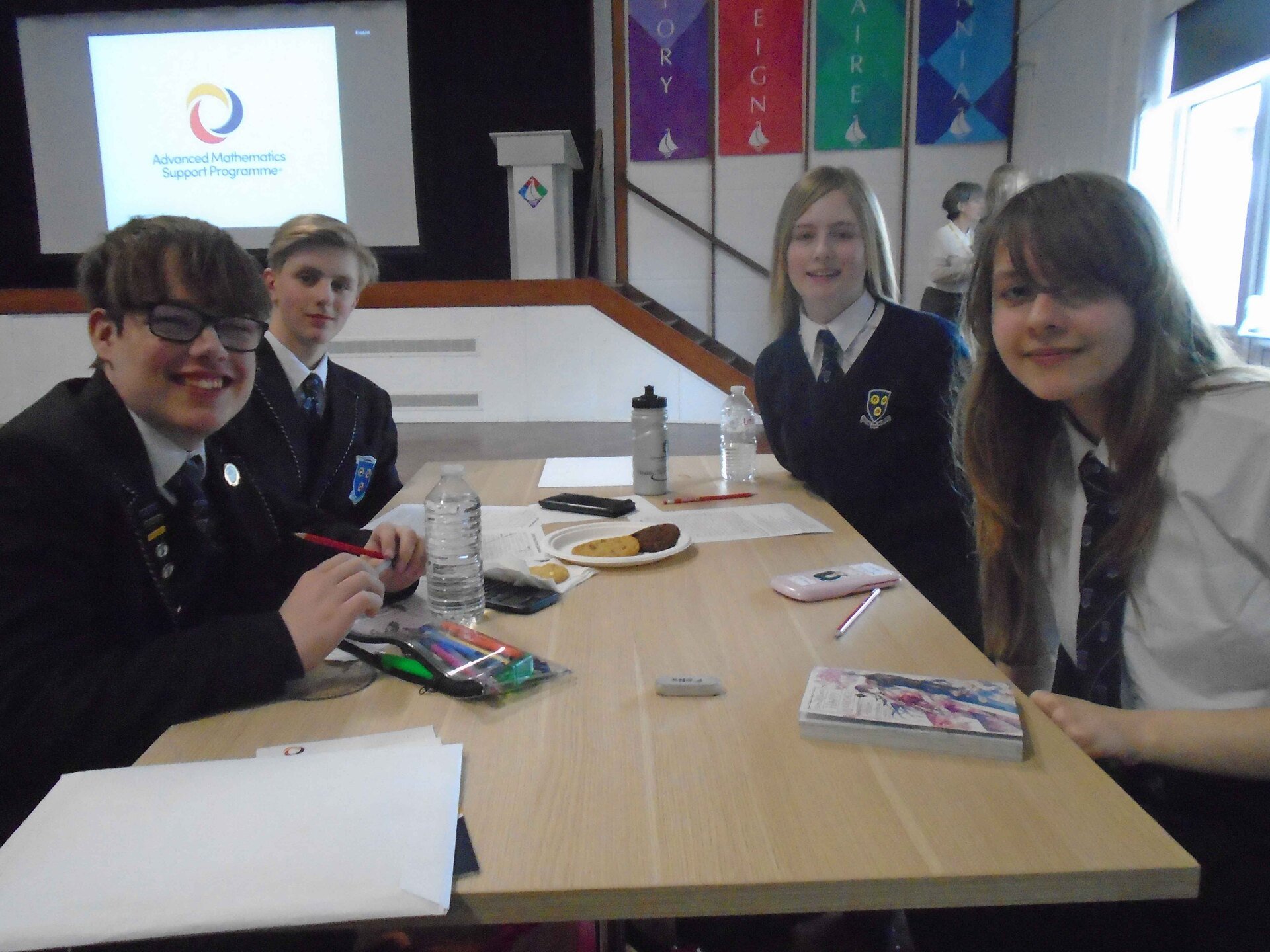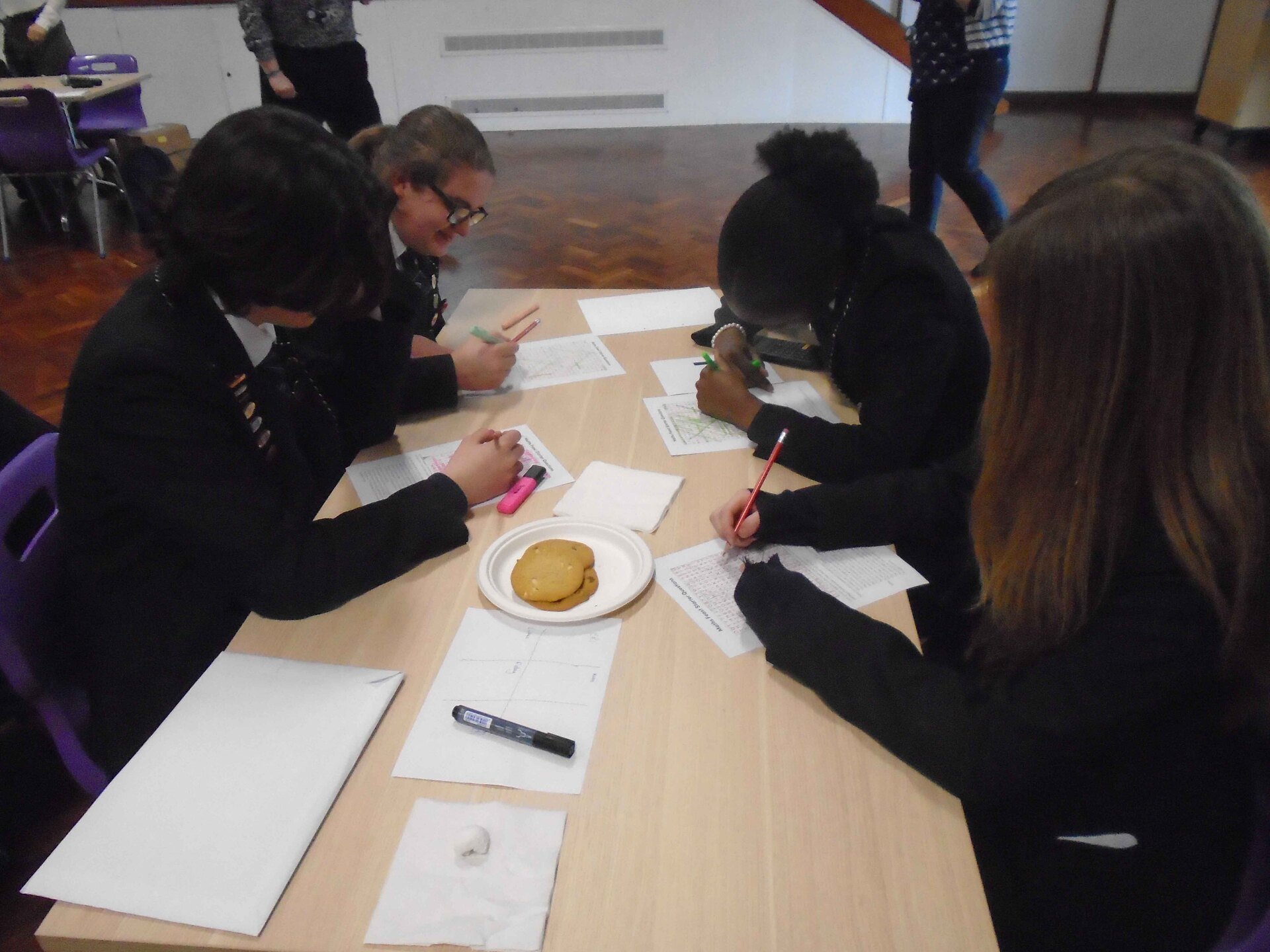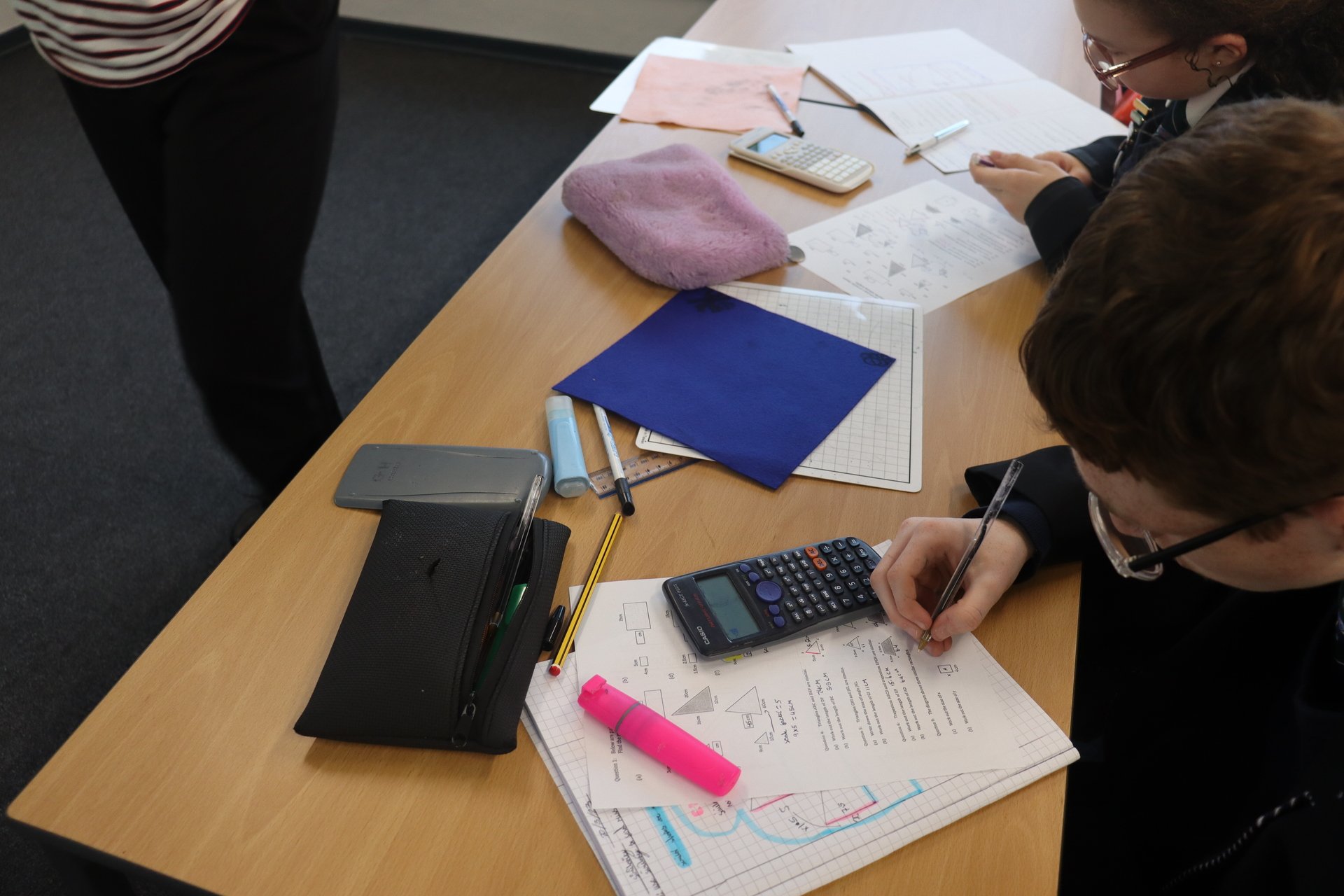 |
 |
Mathematics
Intent
- become fluent in the fundamentals of mathematics, including through varied and frequent practice with increasingly complex problems over time, so that pupils develop conceptual understanding and the ability to recall and apply knowledge rapidly and accurately.
- reason mathematically by following a line of enquiry, conjecturing relationships and generalisations, and developing an argument, justification or proof using mathematical language
- solve problems by applying their mathematics to a variety of routine and nonroutine problems with increasing sophistication, including breaking down problems into a series of simpler steps and persevering in seeking solutions.
Implementation
Outcome
Below are the results for the Mathematics GCSE from the last 3 academic years. The table shows the % pass rates for each grade at Saint Edmund’s and nationally.
|
Grade
|
9+
|
8+
|
7+
|
6+
|
5+
|
4+
|
3+
|
2+
|
1+
|
|
|
2024
|
Saint Edmund’s
|
3.9
|
14
|
29.3
|
46.3
|
73.8
|
88.6
|
94.8
|
97.8
|
99.1
|
|
National
|
3.3
|
9.1
|
16.8
|
26.6
|
42.5
|
59.6
|
77.2
|
89.6
|
97.5
|
|
|
2023
|
Saint Edmund’s
|
3.5
|
12.1
|
22.1
|
34.7
|
63.8
|
84.4
|
93
|
96.5
|
99.5
|
|
National
|
3.3
|
9.5
|
17.1
|
27.2
|
43
|
60.9
|
77.2
|
89.8
|
97.4
|
|
|
2022
|
Saint Edmund’s
|
4.4
|
16.5
|
29.1
|
47.1
|
76.2
|
87.9
|
93.7
|
97.6
|
99.5
|
|
National
|
4.4
|
11.5
|
19.9
|
30.6
|
47.5
|
64.9
|
78
|
90
|
97.5
|
However, the results we are most proud of as a department are our progress scores, these show on average how much more progress was made within our school compared to other similar students nationally. A score of 0.5 would mean students did half a grade better with us than students across the country.
|
Year
|
Progress Score
|
|
2024
|
+0.64
|
|
2023
|
+0.48
|
|
2022
|
+0.68
|
Key Stage 3 (Year 7 - 9)
The Saint Edmund’s KS3 curriculum builds upon the excellent teaching and progress students receive from our primary feeder schools. It aims to push the students to achieve above traditional expectations, moving learners who are broadly in line with the age-related expectations to learners who are above age related expectations. We ensure that the entire K3 curriculum is delivered at the appropriate level for each learner. You can see the scheme of work which we follow in the KS3 Curriculum Map.
Key Stage 4 (Year 10 - 11)
The overview of topics taught, beginning in Year 9, can be found below:
Careers
GCSE Mathematics is a valuable qualification that supports a wide range of career paths. It provides essential skills in problem-solving, logical reasoning, and numerical understanding, which are highly sought after in many professions. Careers in engineering, finance, accountancy, architecture, teaching, and computing all rely heavily on mathematical knowledge. Additionally, roles in the sciences, healthcare, construction, and even the arts often require a solid grasp of maths. Employers across all sectors view GCSE Mathematics as a key indicator of analytical ability and practical thinking.
Extra-curricular Activities
 |
 |
 |
Practical Lessons
The Mathematics department at Saint Edmund's includes practical uses of Mathematics when appropriate, some examples are below.
Students in Year 9 studying right-angled triangles spend one of their lessons outside of the classroom learning how to use trigonometry to determine the height of a variety of school buildings and some local buildings.
 |
 |
 |
Taking inspiration from Ezekiel 4:9, a group of students in Year 8 learnt one of the many cross-curricular links in maths. In their first lesson, students learnt to scale a recipe for "Ezekiel Muffins" up and down and how they would scale it for their own needs. In the following lesson, students made use of the iPad to work out where they should purchase the ingredients to ensure they got them for the best value. For the final lesson, students used the food technology room to bake their own Ezekiel muffins, adding their own additional toppings and flavours.
 |
 |
 |
Homework
Sparx - St Edmund's Catholic School (sparxmaths.uk)
In Maths, homework is set every week on a Tuesday at 8am and is due the following Monday at 8am. The expectation is for Years 7 - 10 to spend approximately 30 minutes actively working on the homework each week, whilst those in Year 11 spend approximately 60 minutes actively working on the homework each week to help prepare them for their exams.
Resources
Students are expected to supply their own calculator and should purchase one before starting at Saint Edmund’s Catholic School. We provide books, homework and all additional resources necessary for the successfully achievement of the learners in our charge.
|
|
 |
Mr Barton Maths - Videos and GCSE exam-style questions - GCSE Maths Takeaway Revision on Mr Barton Maths
Corbett Maths - Videos, worksheets and GCSE exam-style questions - Videos and Worksheets – Corbettmaths
Maths Genie - Videos and GCSE exam-style questions - Maths Genie • Learn GCSE Maths for Free
Student comments
Recommended reading
In addition to the books listed on the reading canon for KS3, we also recommend the following books:
For improving readers:
Sir Cumference and the Dragon of Pi – Cindy Neuschwander and Wayne Geehan
Sir Cumference and the Dragon of Pi is a fun way to learn about math! With its colourful pictures and exciting story, the book makes math really interesting. You'll get to join Sir Cumference on his adventures and learn all about pi and shapes. It's a book that makes learning math super fun!
Year 10





























